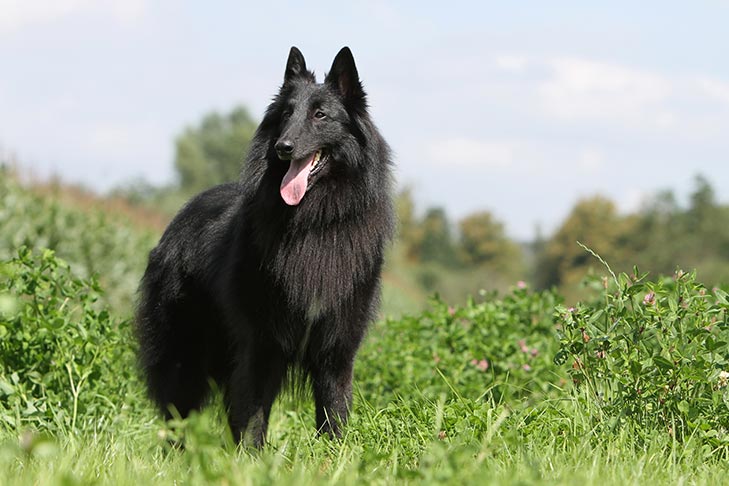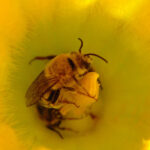Belgian Sheepdog: History, Facts, Size, Habitat, Classification
Belgian Sheepdog is a remarkable breed of animal. Their history is fascinating, and their unique characteristics make them a popular choice for many people. In this article, we will delve into the captivating world of Belgian Sheepdogs, exploring their history, facts, size, habitat, and classification.
Belgian Sheepdogs have a rich history that dates back several centuries. They originated in Belgium and were primarily bred for herding and guarding livestock. Known for their intelligence and loyalty, these animals have been invaluable to farmers in the region for generations. Over time, they have gained recognition as skilled search and rescue dogs, as well as reliable companions and protectors.
In terms of physical characteristics, Belgian Sheepdogs are medium-sized animals with a well-built and muscular body. They have a dense double coat that provides protection from harsh weather conditions, allowing them to thrive in various habitats. Their coat can be black or fawn, and their expressive almond-shaped eyes add to their overall allure.
Belgian Sheepdogs fall under the category of herding dogs, specifically the herding and guarding breed group. These animals have been classified as such due to their natural instincts and abilities when it comes to herding and protecting livestock. Their high energy levels and innate intelligence make them excellent working dogs, constantly seeking engagements that stimulate their minds and bodies.
In conclusion, Belgian Sheepdogs are captivating creatures with a rich history and unique set of characteristics. Their origins in Belgium, coupled with their intelligence, loyalty, and impressive physical traits make them a popular choice for many people. As we delve further into the world of animals, we hope this article piques your interest and encourages you to explore the wonderful world of Belgian Sheepdogs and other fascinating species. Stay tuned for more captivating animal articles on our blog!
History of Belgian Sheepdog
The Belgian Sheepdog is a breed of dog that has a long and interesting history. It originated in Belgium and was initially used for herding and guarding livestock. These dogs were highly valued for their intelligence, agility, and strong work ethic.
During World War I, the Belgian Sheepdog played a crucial role in the war effort. They were used as messenger dogs, search and rescue dogs, and even as ambulance dogs. Their bravery and loyalty saved many lives on the battlefield.
After the war, the Belgian Sheepdog gained popularity as a police and military dog due to their exceptional skills and trainability. They were used in various roles, such as tracking down criminals, detecting drugs or explosives, and serving as search and rescue dogs in disaster situations.
Today, Belgian Sheepdogs are not only used as working dogs but also make wonderful companions and show dogs. They are known for their protective nature and strong bond with their families. These dogs require lots of exercise and mental stimulation to keep them happy and healthy.
In conclusion, the Belgian Sheepdog has a rich history that spans centuries. From their origins as herding dogs to their vital role in wartime and their continued service as working and companion animals, these dogs have proven themselves to be intelligent, loyal, and versatile. Whether in the field or at home, the Belgian Sheepdog truly is a remarkable breed.
Importance of Belgian Sheepdog
The Belgian Sheepdog is a wonderful animal that holds great importance. Firstly, these dogs are known for their loyalty and devotion to their owners. They are always ready to protect and serve their families, making them excellent guard dogs. Their strong bond with humans makes them helpful companions and makes people feel safe and secure.
Secondly, Belgian Sheepdogs are highly intelligent. They are quick learners and can be trained to perform various tasks. This intelligence makes them great candidates for jobs such as search and rescue, police work, and therapy dog duties. They have a keen sense of smell and can detect things that are hidden from human eyes. This makes them valuable in situations where finding missing persons or detecting drugs and explosives is crucial.
Lastly, Belgian Sheepdogs have a strong work ethic and abundant energy. They are well-suited for tasks that require physical strength and endurance. They have a natural herding instinct and excel in herding livestock. Their ability to work long hours without getting tired is truly impressive. This makes them helpful in agricultural settings and in fields that require hardworking animals.
In conclusion, the Belgian Sheepdog is an important animal due to its loyalty, intelligence, and strong work ethic. They make incredible companions, are capable of performing important tasks, and have energy that allows them to excel in physically demanding jobs. These remarkable qualities have earned them a special place in the hearts of many people around the world.
Amazing Facts About Belgian Sheepdog
1. The Belgian Sheepdog is a breed of dog that originated in Belgium.
2. It is also known as the Belgian Shepherd or the Groenendael, after the village of Groenendael in Belgium.
3. The Belgian Sheepdog is a medium-sized dog with a strong and muscular build.
4. It has a long, thick double coat that is black in color, which provides protection in harsh weather conditions.
5. This breed is known for its high energy levels and intelligence, making it suitable for various tasks such as herding, guarding, and working with law enforcement agencies.
6. Belgian Sheepdogs are highly trainable and excel in obedience and agility competitions.
7. They have a strong instinct to protect their family and can be wary of strangers; therefore, proper socialization is crucial from an early age.
8. Despite their protective nature, they generally get along well with children and make great family pets.
9. Belgian Sheepdogs require regular exercise to prevent boredom and to keep them mentally and physically stimulated.
10. They excel in activities like obedience training, tracking, and search and rescue work.
11. Their herding instincts are still intact, so they may try to herd other pets or small children.
12. Belgian Sheepdogs are generally healthy dogs, but they may be prone to certain health issues such as hip dysplasia and epilepsy.
13. Regular grooming is required for this breed as their long coats tend to mat and tangle. Brushing their coat at least a few times a week is recommended.
14. They have a strong work drive and as a result, they thrive in homes that offer them a job or purpose.
15. The life span of a Belgian Sheepdog is typically around 10-14 years with proper care and nutrition.
Can we keep Belgian Sheepdog as our Pet?
The Belgian Sheepdog is a wonderful animal, known for its intelligence and loyalty. However, keeping them as pets is not recommended. This breed requires extensive grooming and exercise, making them better suited for experienced owners or those with ample time and resources.
Unfortunately, the Belgian Sheepdog is not extinct. They are still thriving today, although they may be less common than other dog breeds. Due to their specific needs and characteristics, it is important to thoroughly research and understand the demands of owning a Belgian Sheepdog before considering them as a pet.
It is worth noting that while these dogs can be loving companions, they require plenty of attention and care to ensure their well-being. Their coat needs regular brushing to prevent matting and they also need daily exercise to stay happy and healthy. If a person is unable to adequately meet these requirements, it is best to consider a different breed that better suits their lifestyle.
Size of Belgian Sheepdog
The Belgian Sheepdog is a medium to large-sized breed of dog. They can grow to be about 22 to 26 inches (55 to 66 centimeters) tall at the shoulder. This means that they can stand quite tall compared to some other dog breeds.
In terms of weight, Belgian Sheepdogs are quite muscular and sturdy. They usually weigh between 55 to 75 pounds (25 to 34 kilograms). This can vary slightly depending on the individual dog and their build. Some may be lighter or heavier, but generally, they fall within this range.
When you see a Belgian Sheepdog, you will notice that they are elegant and powerful. Their long, thick fur gives them a majestic appearance. This breed has a sturdy body with a strong frame. They are also known for their athletic abilities and agility.
In summary, Belgian Sheepdogs are medium to large-sized dogs that can stand tall compared to some other breeds. They usually weigh between 55 to 75 pounds and have a strong and sturdy build. With their elegant appearance and athletic abilities, they make for impressive companions.
Habitat of Belgian Sheepdog
The Belgian Sheepdog is a versatile and intelligent breed that can adapt to various habitats. These dogs can thrive in both rural and urban environments; however, they require adequate space and mental stimulation to be happy and healthy.
In rural areas, Belgian Sheepdogs can enjoy the freedom to roam and explore. They are well-suited for farm life, where their natural herding instincts can be used to manage livestock. The open spaces and fresh air of the countryside provide them with ample opportunities for exercise and play, which is essential for their physical and mental well-being.
In urban areas, Belgian Sheepdogs can adapt to living in apartments or houses with smaller yards. However, it is crucial for their owners to provide them with regular exercise to prevent boredom or destructive behavior. Daily walks, visits to dog parks, or engaging in dog sports such as agility can help fulfill their need for mental and physical stimulation.
No matter where they live, Belgian Sheepdogs are happiest when they are with their human families. They are loyal and protective companions, and they thrive on being a part of their family’s daily activities. Access to proper shelter, nutritious food, clean water, and regular veterinary care are also essential to ensure their well-being.
In conclusion, the Belgian Sheepdog can adapt to various habitats, including rural and urban environments. They require space to roam and mental stimulation to be happy and healthy. Whether in the countryside or the city, Belgian Sheepdogs thrive when they are with their human families and provided with proper care and exercise.
Evolution of Belgian Sheepdog
Belgian Sheepdogs have a fascinating evolution story. These loyal and hardworking animals have been around for hundreds of years, going through changes as they adapted to different environments and tasks. In the beginning, these dogs were primarily used for herding livestock. Their ancestors, the sheepdogs, were bred in Belgium to help shepherds in the fields. Their job was to gather, protect, and guide sheep from one place to another.
As time passed, the Belgian Sheepdog breed started diversifying. Some were trained to be police dogs, using their intelligence and strength to aid the officers in their duties. Others were used as military dogs during war, where they displayed their bravery and loyalty in protecting soldiers on the battlefield. This versatility allowed them to excel in various roles and made them highly sought-after working dogs.
Throughout the years, the Belgian Sheepdog has continued to evolve, both in appearance and purpose. Breeders have focused on enhancing specific traits like agility, speed, and intelligence. Today, the Belgian Sheepdog has become not only a reliable herding and working dog but also a beloved family companion. Their intelligence, loyalty, and protective nature make them excellent household pets.
In summary, the Belgian Sheepdog has come a long way since its beginnings as a herding dog. Their evolution is a testament to their adaptability and versatility. From helping shepherds with their flocks to serving as military and police dogs, these animals have shown their remarkable capabilities. Their journey continues as they adapt to modern living and their role expands beyond work to becoming cherished members of many families.
Classification of Belgian Sheepdog
The Belgian Sheepdog is a remarkable animal that belongs to the herding group of dogs. They are known for their intelligence, agility, and loyalty. These dogs have a strong body with long hair that protects them from harsh weather conditions. They are often used for various tasks such as herding livestock, search and rescue missions, and even serving as therapy dogs.
Belgian Sheepdogs are classified as a medium to large-sized breed. They have a well-proportioned body with a height ranging from 22 to 26 inches. Their weight can vary between 50 to 65 pounds. These dogs have a beautiful coat that comes in different shades of black, and they shed moderately throughout the year. They are highly active and require regular exercise to keep them mentally and physically stimulated.
In terms of temperament, Belgian Sheepdogs are known for their loyalty and protective nature. They are vigilant and make excellent watchdogs. They can be a bit reserved with strangers but are extremely affectionate towards their family. These dogs are highly intelligent and eager to please, which makes them easy to train. However, they require consistent and firm training methods to prevent any behavioral issues.
In conclusion, the Belgian Sheepdog is a remarkable breed that falls under the herding group of dogs. They are intelligent, loyal, and protective animals that require regular exercise and consistent training. These dogs are often used for various tasks due to their versatility and make wonderful companions for the right owner.
Types of Belgian Sheepdog
1. Belgian Malinois: The Belgian Malinois is a highly intelligent and energetic breed of Belgian Sheepdog. They are known for their strong work ethic and make great police, military, and search and rescue dogs. They are also very loyal and protective of their families.
2. Belgian Tervuren: The Belgian Tervuren is another type of Belgian Sheepdog. They are known for their striking appearance with their long, thick, and straight coat. They are intelligent, agile, and excel in various dog sports including obedience, herding, and tracking.
3. Belgian Laekenois: The Belgian Laekenois is a rare type of Belgian Sheepdog. They have a wiry, rough coat and are considered versatile working dogs. They have been used as herding dogs, police dogs, and even as therapy dogs.
4. Belgian Groenendael: The Belgian Groenendael is a long-coated variety of Belgian Sheepdog. They are elegant and have a strong desire to please their owners. They excel in obedience and various dog sports. They are also known for their loyalty and protective nature.
5. Belgian Sheepdog-Mixed Breeds: Belgian Sheepdogs are often mixed with other breeds, resulting in crossbreeds such as the Belusky (Belgian Sheepdog & Husky mix), Belgiweenie (Belgian Sheepdog & Dachshund mix), or the Belgidor (Belgian Sheepdog & Labrador Retriever mix). These mixed breeds can inherit traits from both parent breeds.
6. Belgian Malinois-German Shepherd mix: This crossbreed combines the intelligence and energy of the Belgian Malinois with the strength and versatility of the German Shepherd. They are often used in law enforcement and as service dogs due to their loyalty, protectiveness, and trainability.
7. Belgian Shepherd-Maltese mix: This mix combines the elegance and agility of the Belgian Shepherd with the small size and sociability of the Maltese. They make great family pets and are known for being friendly, loving, and easy to train.
8. Belgian Tervuren-Australian Shepherd mix: This crossbreed combines the beauty and intelligence of the Belgian Tervuren with the herding skills of the Australian Shepherd. They are highly active and require mental and physical stimulation. They are also known for their loyalty and protective instincts.
9. Belgian Sheepdog-Poodle mix: This crossbreed combines the curly coat of the Poodle with the intelligence and loyalty of the Belgian Sheepdog. They are often sought after for their hypoallergenic qualities and make great family pets.
10. Belgian Laekenois-Golden Retriever mix: This mix combines the unique appearance and versatility of the Belgian Laekenois with the friendly and sociable nature of the Golden Retriever. They are loving, gentle, and make great companions. They thrive in environments where they receive plenty of love, attention, and exercise.
Geographical Presence of Belgian Sheepdog
The Belgian Sheepdog, also known as the Groenendael, is a breed of dog that originates from Belgium in Europe. They are primarily found in the European region and are well-known for their intelligence, loyalty, and excellent herding abilities. In Belgium, especially in the town of Groenendael, these dogs are highly valued and can often be seen assisting farmers in herding and protecting livestock.
However, Belgian Sheepdogs are not only limited to Belgium or Europe. They can also be found in other parts of the world, as they have gained popularity as family pets and working dogs. Nowadays, you may come across Belgian Sheepdogs in various countries such as the United States, Canada, Australia, and many more, where people admire their remarkable skills, strength, and versatility.
On the other hand, there are some regions where Belgian Sheepdogs are not commonly found. These include countries in Africa, South America, and some parts of Asia. The reasons for their absence in these areas may vary, such as a lack of demand, prevailing climate conditions unsuitable for their thick coat, or restrictions on pet ownership due to local regulations.
In conclusion, the Belgian Sheepdog primarily belongs to the European region, with Belgium being its place of origin. However, these intelligent and loyal dogs can also be found in other countries worldwide. While they are beloved and cherished by many, there are still regions where they are less common, such as certain parts of Africa, South America, and Asia.
Scientific Name of Belgian Sheepdog
The scientific name of the Belgian Sheepdog animal is Canis lupus familiaris. This animal belongs to the Canidae family, which includes other dogs and wolves. The specific breed known as the Belgian Sheepdog is a member of the herding group, known for their intelligence and agility.
Belgian Sheepdogs are known for their medium to large size, athletic build, and distinctive black coat. They are often used as working dogs due to their herding abilities and trainability. These dogs have a strong sense of loyalty and are known for being protective of their families and property.
As part of the Canis lupus familiaris species, Belgian Sheepdogs are descendants of wolves. Over time, humans have bred and domesticated dogs for various purposes, resulting in the wide variety of breeds we have today. The Belgian Sheepdog is just one example of the many different dog breeds that exist, each with its own unique characteristics and abilities.
Diet of Belgian Sheepdog
The diet of the Belgian Sheepdog is very important for keeping them healthy and strong. These dogs belong to the herding breed and they are quite active and energetic. In order to fuel their activities, they need a well-balanced diet that provides them with all the necessary nutrients.
The first paragraph will focus on the main components of their diet. A good diet for a Belgian Sheepdog should include high-quality protein sources, such as lean meats or fish. This helps to build and maintain strong muscles in their bodies. They also need carbohydrates in the form of grains or vegetables, which give them the energy to stay active throughout the day. Healthy fats are also important to support their overall health, and they can be found in sources like fish oil or flaxseed. It is also essential to provide them with a variety of fruits and vegetables to supply them with vitamins and minerals.
The second paragraph will discuss the feeding schedule for a Belgian Sheepdog. It is generally recommended to divide their daily food intake into two meals, one in the morning and one in the evening. This helps to regulate their metabolism and prevents overeating. It is important to carefully measure their food portions according to their age, size, and activity level. Regular feeding times and portion control are essential to maintain a healthy weight and prevent obesity.
The third paragraph will mention the importance of providing fresh water at all times. Belgian Sheepdogs should always have access to clean and fresh water. Water helps to keep them hydrated, aids digestion, and keeps their coat healthy. It is also recommended to avoid feeding them table scraps or human food, as these can be harmful to their digestive system. By providing a nutritious and balanced diet, along with plenty of water, Belgian Sheepdogs can lead a healthy and happy life.
Locomotion of Belgian Sheepdog
The Belgian Sheepdog is a very energetic dog that has a unique way of moving called locomotion. Locomotion is how animals move and get around. When the Belgian Sheepdog moves, it puts one foot in front of the other in a smooth and graceful manner.
When the Belgian Sheepdog walks or runs, its movement is called a trot. It is like a quick and steady jog. The dog’s legs move in sync, with the front and back legs on each side working together. This helps the Belgian Sheepdog move smoothly and efficiently, making it a great herding dog.
In conclusion, the Belgian Sheepdog has a special way of moving called locomotion, which involves a smooth trotting motion. This type of movement allows the dog to move gracefully and efficiently, making it well-suited for herding tasks.
Social and Sexual Behaviour of Belgian Sheepdog
Belgian Sheepdogs are known for their friendly and sociable nature. They enjoy being around humans and other animals, making them great companions. These dogs like to interact and play with their family members, showing loyalty and affection. They have a strong desire to please their owners, making them easy to train and obedient. These dogs also have a protective instinct, which makes them well-suited as watchdogs.
When it comes to sexual behavior, Belgian Sheepdogs typically reach sexual maturity between 6 to 12 months old. Female dogs experience a heat cycle, also known as the estrus cycle, which occurs twice a year and lasts for about three weeks. During this time, they may attract male dogs who display interest through certain behaviors. Breeding usually occurs during the estrus cycle, and after a gestation period of around 63 days, the female dog gives birth to a litter of puppies.
Belgian Sheepdogs have a natural tendency to be sociable and loving to humans. They enjoy playing and spending time with their family, showing loyalty and protecting their loved ones. In terms of sexual behavior, female Belgian Sheepdogs go through a heat cycle twice a year, during which they can reproduce and give birth to adorable puppies.
Reproduction and Lifecycle of Belgian Sheepdog
The reproduction and life cycle of the Belgian Sheepdog animal is a fascinating topic to explore. Like many other animals, the Belgian Sheepdog follows a reproductive process called sexual reproduction. This means that both a male and a female Belgian Sheepdog are involved in creating new offspring.
The life cycle of a Belgian Sheepdog begins with the birth of a puppy. The puppies are born after the female Belgian Sheepdog goes through a period of pregnancy that lasts for about two months. Once the puppies are born, they depend on their mother for food and protection. As they grow, they start learning different skills from their mother and other dogs around them.
As the Belgian Sheepdog puppies continue to grow and develop, they go through various stages of life. During their first few weeks, they rely on their mother’s milk for nourishment. As they become older, they start eating solid food and become more independent from their mother. The Belgian Sheepdog puppies gradually grow into adult dogs and are capable of reproducing themselves.
The reproductive cycle of the Belgian Sheepdog involves finding a suitable mate and going through a process called mating. This is when the male transfers his sperm to the female’s reproductive organs, leading to the fertilization of the eggs. After mating, the female can become pregnant and give birth to a new litter of puppies, thus continuing the life cycle of the Belgian Sheepdog animal.
Threats to Belgian Sheepdog
Belgian Sheepdogs, like any other animal, face several threats that can endanger their existence. One major threat to these dogs is poor breeding practices. Irresponsible breeders may not prioritize the health and well-being of the dogs, leading to the propagation of genetic diseases and conditions. This can result in serious health issues for Belgian Sheepdogs, reducing their quality of life and potentially shortening their lifespan.
Another threat to Belgian Sheepdogs is neglect and mistreatment. Some owners may not provide proper care, leaving these intelligent and active dogs deprived of exercise, mental stimulation, and social interaction. This can lead to behavioral problems and result in a decline in their overall well-being. Additionally, neglect can cause the dogs to become fearful or aggressive, posing a risk to themselves and others.
Finally, lack of legislation and enforcement against animal abuse is another threat. Without adequate protection and punishment for those who harm animals, Belgian Sheepdogs and other animals are left vulnerable to cruelty. This can include physical abuse, abandonment, or neglect, all of which have severe consequences for the dogs.
To ensure the survival and well-being of Belgian Sheepdogs, it is important to address these threats. Responsible breeding practices, such as health screenings and selecting suitable mates, can help reduce the prevalence of genetic diseases. Education and awareness campaigns can also promote proper care and treatment for these dogs, emphasizing the essential needs of exercise, mental stimulation, and socialization. Additionally, implementing and enforcing strict laws against animal abuse can serve as a deterrent and protect Belgian Sheepdogs from harm.
Population of Belgian Sheepdog
The population of Belgian Sheepdog animals is estimated to be around 4,000 to 5,000 individuals. These beautiful and intelligent creatures are known for their thick black coats and their ability to excel in various activities such as herding, agility, and search and rescue. They are loyal and protective, making them great companions for families and working partners for farmers.
However, if the Belgian Sheepdog were to become extinct, it would mean that there are no more of these animals left in the world. Extinction occurs when a species disappears completely, usually due to factors such as habitat loss, hunting, or disease. It is a very sad event for both nature and humans, as it means that we have lost a unique and valuable part of our natural heritage.
To prevent such a sad fate, it is important that we take action to protect and conserve the Belgian Sheepdog population. This can include preserving their natural habitats, implementing strict regulations against hunting, and promoting responsible breeding practices. By doing so, we can ensure that these wonderful animals continue to thrive and bring joy to our lives.
Conclusion
In summary, the Belgian Sheepdog is a wonderful and fascinating animal. With a rich history and significant role in society, this breed has truly made its mark. From its origins as a diligent herding dog to its classification as a loyal and protective companion today, the Belgian Sheepdog has proven to be an exceptional breed.
Firstly, the Belgian Sheepdog’s history is deeply rooted in its herding abilities. For many years, these dogs worked alongside farmers, helping them with their livestock. Their intelligence and agility made them perfect for the job. Over time, they became popular not only in Belgium but also in other parts of the world.
Secondly, the Belgian Sheepdog’s size and habitat are important to understand. They are known to be medium to large dogs, with a strong build and a beautiful black coat. As for habitat, they can adapt to various environments, making them adaptable to different living conditions.
Lastly, the classification of the Belgian Sheepdog as a herding dog reveals its true nature. These dogs are incredibly devoted to their families and possess a protective instinct. They are known to be affectionate and loyal, making them excellent companions.
In conclusion, the Belgian Sheepdog is a remarkable animal that has rightfully earned its place in our hearts. With its rich history, adaptable nature, and loyal companionship, this breed is truly special. Whether as a working dog in the past or a beloved family pet today, the Belgian Sheepdog continues to bring joy and love to those around them.
Frequently Asked Questions about Belgian Sheepdog (FAQ’s)
Q: What is a Belgian Sheepdog?
A: The Belgian Sheepdog is a breed of working dog that is known for its intelligence and agility.
Q: Where did the Belgian Sheepdog originate from?
A: The Belgian Sheepdog originated in Belgium.
Q: What is the average size of a Belgian Sheepdog?
A: The average size of a Belgian Sheepdog is between 22-26 inches (56-66 cm) tall at the shoulder.
Q: What is the average weight of a Belgian Sheepdog?
A: The average weight of a Belgian Sheepdog is between 55-75 pounds (25-34 kg).
Q: What is the typical lifespan of a Belgian Sheepdog?
A: The typical lifespan of a Belgian Sheepdog is around 10-12 years.
Q: Is the Belgian Sheepdog good with children?
A: Yes, Belgian Sheepdogs are known to be good with children. They are loyal and protective by nature.
Q: Are Belgian Sheepdogs easy to train?
A: Yes, Belgian Sheepdogs are highly intelligent and eager to please, making them relatively easy to train.
Q: Do Belgian Sheepdogs require a lot of exercise?
A: Yes, Belgian Sheepdogs are an active breed that requires regular exercise to prevent behavioral issues.
Q: Do Belgian Sheepdogs shed a lot?
A: Yes, Belgian Sheepdogs have a dense double coat that sheds heavily, especially during seasonal changes.
Q: Are Belgian Sheepdogs good guard dogs?
A: Yes, Belgian Sheepdogs have a natural protective instinct and make excellent guard dogs.
Q: Can Belgian Sheepdogs live in apartments?
A: Belgian Sheepdogs are not ideal for apartment living as they require ample space to exercise.
Q: How often should I groom my Belgian Sheepdog?
A: Belgian Sheepdogs require regular grooming, including brushing at least a few times a week to prevent matting.
Q: Are Belgian Sheepdogs prone to any health issues?
A: Belgian Sheepdogs can be prone to hip dysplasia, epilepsy, and certain eye conditions.
Q: Do Belgian Sheepdogs get along with other pets?
A: With proper socialization, Belgian Sheepdogs can get along well with other pets in the household.
Q: Are Belgian Sheepdogs suitable for first-time dog owners?
A: Belgian Sheepdogs are best suited for experienced dog owners who can provide them with the training, exercise, and mental stimulation they require.
Q: Can Belgian Sheepdogs be left alone for long hours?
A: Belgian Sheepdogs are highly sociable dogs and can suffer from separation anxiety if left alone for extended periods. They thrive in a household where someone is usually present.

Hi there! I’m Morgan Gutierrez, and I love animals! I work as a Seasonal Animal Care Specialist at Brookfield Zoo and also teach people about animals, which is super fun. I studied at Valparaiso University in Lockport, Illinois, where I learned even more about these amazing creatures.
I’m not just about taking care of animals; I write articles about them, too! I explore and share many interesting animal stories, from cute kittens to giant elephants.
In the past, I’ve worked with veterinarians, helped with research, and even been an Animal Ambassador, bringing animals closer to people. Animals are my passion, and I enjoy helping others learn about them. So, if you ever want to know about animals, feel free to ask. I’ll explain it in a way that’s easy to understand, just like talking to a friend!












